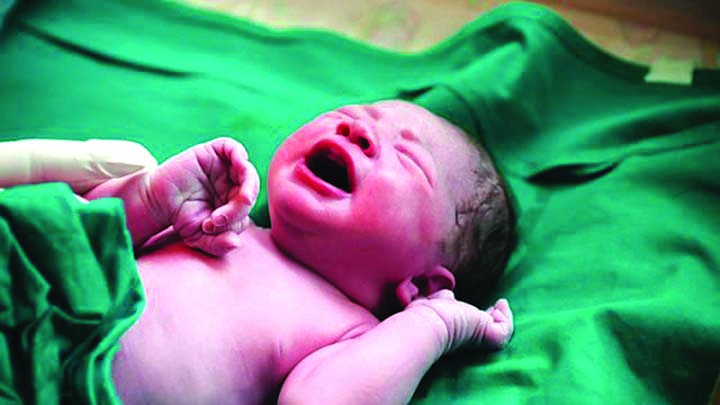
A man who donated sperm so his gay friend could have a baby more than a decade ago has parental rights over their daughter, Australia’s High Court ruled Wednesday.
The court said that because the man was listed on the birth certificate and had an “extremely close” relationship with the girl, he was the father and should have a say in whether she is taken to live in New Zealand.
The man – who goes by the pseudonym ‘Robert’ for legal reasons – agreed to donate his sperm to a friend in 2006 via artificial insemination.
Despite them not living together, Robert had “an ongoing role in the child’s financial support, health, education and general welfare”, the court said.
Problems arose when the girl’s mother and her same-sex partner wanted to move to New Zealand in 2015.
Judge Margaret Cleary ruled that a lower court was wrong to rule against the father and concluded that the child should remain in Australia so he can have visitation rights.
It is unclear, given the specifics of this relationship, whether the case could set a precedent for future judgements. He was actively involved in the girl and her younger sister’s life, with both calling him “Daddy”.
Issues arose when the mother and her partner wanted to move to New Zealand with the girls.
Mr Masson stopped them through the Family Court as he was found to be a parent, but on appeal state laws were used to rule him as purely a sperm donor. Solicitor General Stephen Donaghue QC argued the commonwealth definition should be used.
“State law is just not relevant,” he told the court.
Lawyers for Ms Parsons and her partner say the man is a sperm donor and not a parent.
The case has its beginnings in late 2006, when Masson and Susan Parsons (her court pseudonym) agreed to have a child through artificial insemination.
Masson agreed on the understanding he would parent, provide financial support and financial care.
He is named as the girl’s father on her birth certificate.
He was actively involved in the life of the girl and her younger sister, with both calling him “Daddy”.
Issues arose when the mother and her partner wanted to move to New Zealand with the girls.
Masson stopped them through the family court as he was found to be a parent, but on appeal state laws were used to rule him as purely a sperm donor.
Solicitor general Stephen Donaghue QC argued the commonwealth definition should be used.
“State law is just not relevant,” he told the court.
Lawyers for Parsons and her partner say the man is a sperm donor and not a parent.
Since you’re here…
… we have a small favour to ask. More people are reading and supporting The Guardian’s independent, investigative journalism than ever before. And unlike many new organisations, we have chosen an approach that allows us to keep our journalism accessible to all, regardless of where they live or what they can afford. But we need your ongoing support to keep working as we do.
The Guardian will engage with the most critical issues of our time – from the escalating climate catastrophe to widespread inequality to the influence of big tech on our lives. At a time when factual information is a necessity, we believe that each of us, around the world, deserves access to accurate reporting with integrity at its heart.
Our editorial independence means we set our own agenda and voice our own opinions. Guardian journalism is free from commercial and political bias and not influenced by billionaire owners or shareholders. This means we can give a voice to those less heard, explore where others turn away, and rigorously challenge those in power.
We need your support to keep delivering quality journalism, to maintain our openness and to protect our precious independence. Every reader contribution, big or small, is so valuable.

